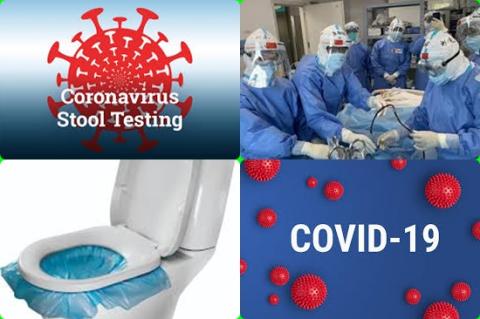
Objectives:
Recent studies showed that SARS-CoV-2 RNA may be found in faecal specimens of COVID-19 patients, but the sample size is limited. Therefore, this review article has been conducted.
What is the detection rate of SARS-CoV-2 RNA in faecal specimens of patients with confirmed COVID-19?
Study design:
This review article included 17 studies, 15 were conducted in Mainland China and 2 others were performed in the United States and Singapore, respectively.
The average age of the study participants ranged from 32 to 53 years. Male patients consisted of 40% to 70% of all subjects.
There was no publication bias.
Results and conclusions:
The investigators found pooled detection rate of SARS-CoV-2 RNA in faecal specimens among patients with confirmed diagnosis was 43.7% [95% CI = 32.6% to 55.0%, I2 = 73.8%, p 0.001] and 33.7% [95% CI = 20.1% to 48.8%, I2 = 85.2%, p 0.001] by patients enrolled (16 studies) and by total number of specimens tested in the whole study (7 studies), respectively.
The investigators found the proportion of patients ever positive for faecal viral RNA was significantly correlated with the number of samples tested per patient in the study [r = 0.704].
The investigators found female individuals [59.6%, 95% CI = 30.4% to 86.2%, I2 = 63.2%, p 0.001 vs. 53.5%, 95% CI = 26.6% to 79.6%, I2 = 65.0%, p 0.001 in male], those who presented with gastrointestinal symptoms [77.1%, 95% CI = 54.0% to 95.1% vs. 57.7%, 95% CI = 37.2% to 77.1%, I2 = 51.5%, p 0.001] or respiratory symptoms [78.9%, 95% CI = 43.7% to 99.9% vs. 50.4%, 95% CI = 24.3% to 76.3%] and patients with higher disease severity [68.3%, 95% CI = 34.5 to 94.9% vs. 34.6%, 95% CI = 10.7% to 63.1%] tended to have a higher proportion with faecal SARS-CoV-2 RNA detected, although the between group proportions did not attain statistical significance.
The investigators concluded a significant proportion of COVID-19 patients carry SARS-CoV-2 in their intestinal tract. Faces being a self-collected specimen bear a potential to improve case identification in community, especially for young children where proper respiratory sampling at home is difficult. Specific infection control strategies focusing on spread via faecal contamination and faulty toilet drainage are urgently needed.
Original title:
Detection of SARS-CoV-2 RNA in Fecal Specimens of Patients With Confirmed COVID-19: A Meta-Analysis by Wong MC, Huang J, […], Chan PKS.
Link:
https://www.ncbi.nlm.nih.gov/pmc/articles/PMC7289116/
Additional information of El Mondo:
Find more information/studies on coronavirus right here.